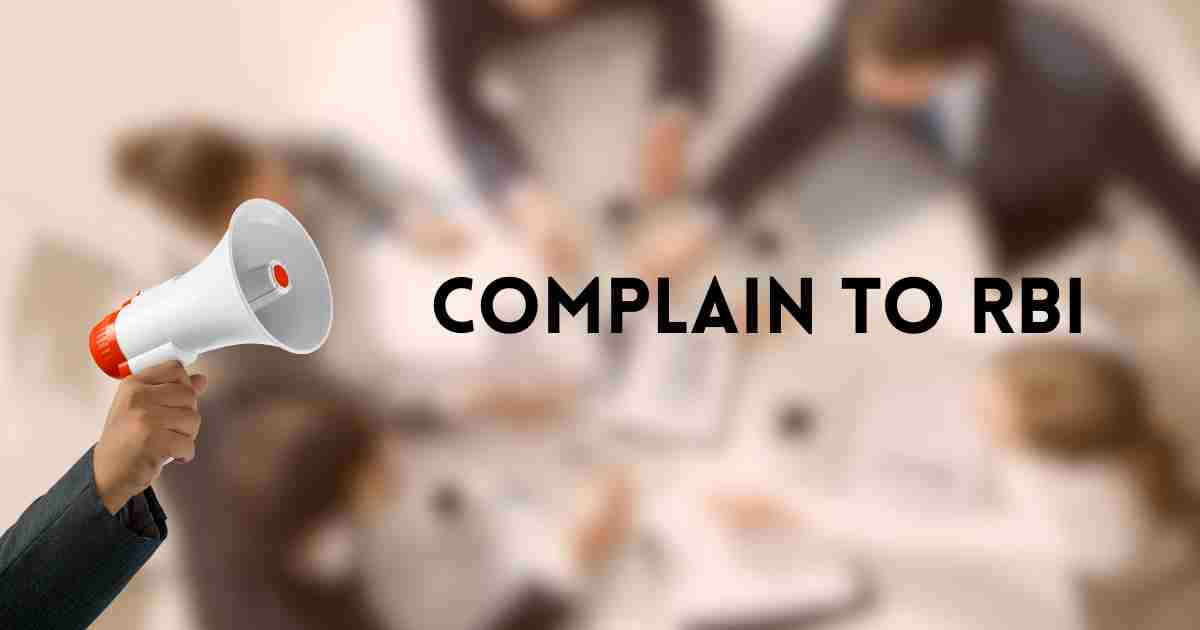· Debt Recovery & Borrower Rights · 3 min read
When to Complain to RBI About Recovery Agent Harassment?
Learn when and how to report harassment by loan recovery agents to the RBI or police, based on borrower rights, RBI guidelines, and legal recourse options

The problem of harassment by recovery agents has become a growing concern in recent years across India. Although lenders have the legal right to recover overdue dues, recovery must be conducted within the framework of the law and with respect for the borrower’s dignity.
The Reserve Bank of India (RBI), through its various circulars and guidelines, has emphasised ethical codes of conduct in debt collection. Yet, instances of abusive calls, threats, ridicule, and even unannounced visits by recovery agents to borrowers’ homes or workplaces continue to occur.
So, when should a borrower escalate harassment to the RBI? Let’s find out.
What Is Considered Harassment in Loan Recovery?
RBI has defined fair recovery practices through its Fair Practices Code and in collaboration with the Code of Bank’s Commitment to Customers (BCSBI). As per these:
● Recovery agents must reach out only between 7 a.m. to 7 p.m.
● They must maintain decency and privacy.
● No public shaming is allowed.
● Friends, relatives, or colleagues must not be involved.
● No abusive or threatening language is permitted.
Examples of harassment include:
● Repeated or late-night phone calls
● Intimidating, abusive, or threatening language
● Visits to the borrower’s workplace
● Contacting the borrower’s friends or relatives
● Publicly sharing the borrower’s debt status with neighbours.
What Should You Do First: Complain to the Bank or the RBI?
Before approaching the RBI, the borrower must first lodge a formal complaint with the lender (bank or NBFC).
Step 1: Submit a Complaint to the Lender
● Write an email or letter to the Grievance Redressal Officer of the lending institution.
● Include:
○ Description of incidents
○ Dates, agent’s name (if known)
○ Call recordings, screenshots, or other proof.
● Request a written response.
● Banks and NBFCs are expected to respond within 30 days.
Step 2: Approach the RBI Ombudsman
If the lender fails to respond or you receive an unsatisfactory reply, you can escalate the matter under the RBI’s Integrated Ombudsman Scheme (2021).
● File your complaint online via RBI’s CMS portal: https://cms.rbi.org.in
● Choose: Recovery Agent Harassment
● Attach the previous complaint, lender response (if any), and relevant documents.
RBI may:
● Instruct the bank to act
● Impose penalties
● Order compensation for mental harassment and related expenses
When Should You Go to the Police?
If the harassment involves physical threats, stalking, character defamation, or invasion of personal space, you should immediately file an FIR at the local police station.
Applicable IPC Sections:
● Section 506 – Criminal intimidation
● Section 509 – Words/gestures intended to insult a woman’s modesty
● Section 441 – Criminal Trespass
Note: You can also file an RBI complaint and a police complaint.
Documents Required
Complaint letter to the bank
Call recordings or screenshots
Chat records from SMS/WhatsApp
Loan account proof and identity documents
Details of any witnesses (if applicable)
Rights Every Borrower Must Know
Right to privacy and dignified treatment
Right to receive advance written notice for agent visits
Right to demand agent identification
Right to complain to the RBI and the police
Right to claim damages in case of harassment
Conclusion
Harassment by recovery agents is not just unethical, it is unlawful. Borrowers are protected under both RBI guidelines and Indian law. If you are experiencing coercion, abuse, or defamation related to loan recovery, you have the right to pursue legal action, beginning with filing a complaint with the lender and escalating to the RBI or police if necessary.
Know your rights. Being in debt is not a crime, but harassment certainly is.

.7k4aTZVf.jpg)
.DcA8WSuG.jpg)
.WPyFdNSA.jpg)